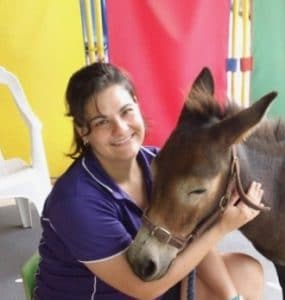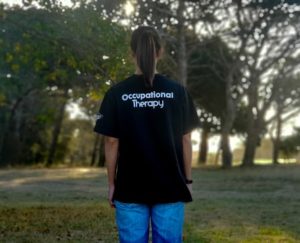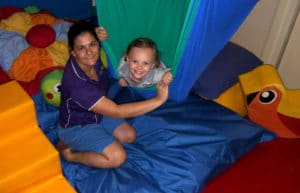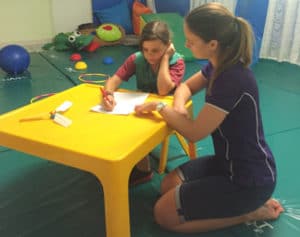It’s normal for children to experience social troubles, moodiness and emotional episodes throughout their development. However, where these experiences are coupled with personality changes or are in excess, something more could be going on.
It’s important to note that an early onset of trauma isn’t a prerequisite to counselling for children. Abnormal behaviours that surface out of the blue also require attention.
Here are five signs that your child needs therapy and how therapy can help.

1. Social Isolation
Children often withdraw from social situations when they feel sad or anxious and, as a result, become more introverted. This prevents them from forming interpersonal relationships and halts development. Some common behaviours associated with social isolation include avoiding play, eating lunch alone, and not wanting to leave the house.
If you notice this happening or if shyness and introversion are not common personality traits for your child, then something could be going on emotionally. Expressive arts psychotherapy is particularly useful in this instance as it promotes community participation and self-expression through music. It’s a fun and encouraging therapy that is proven to aid social communication and skills.
2. Defiant Behaviours
Defiant behaviours can encompass everything from frequent backlashes or arguing and bullying at school. It commonly involves your child getting angry or defensive even over the smallest of conversations. It’s important to note that your child may participate in these behaviours more inside or outside the home, but both cases are cause for concern.
If these behaviours become more frequent over time and other individuals – such as teachers or family members – begin to show concern, then therapy can help. Some forms of therapy, such as cognitive-behavioural therapy (CBT), can help dissect a child’s rage and replace it with more positive thoughts.
3. Regressions
Regression is when your child reverts to previous behaviours that are uncommon in their current stage of development. Although regression usually arises following major life changes in the home – such as divorce or the birth of a new sibling – it can sometimes happen for no apparent reason.
Some regressive behaviours may include:
- Separation anxiety
- Bedwetting
- Clinginess
- Language regression
- Temper tantrums
- Excessive fearfulness
There are several therapies that can aid child regression, including speech and language therapy and occupational therapy. The latter works by helping children overcome cognitive, physical, or sensory disabilities to allow them to function more appropriately.
4. Talking About Death Or Self Harm
It’s normal for children to be curious about death and explore what it means as a concept. However, where your child continuously references dying or death, or uses statements that refer to suicide or killing others, there’s cause for concern. More urgently, if your child expresses ideas or feelings about self-harm, recruit help immediately.
Children, especially those who are older, present these feelings subtly through hopelessness or extreme sadness. Although cutting is primarily associated with self-harm, younger children who bang their heads against objects, hit themselves, or dig their nails into their skin are also exhibiting self-harm tendencies.
Once again, therapies such as CBT can help in reversing negative thoughts and allow your child to speak freely about the thoughts or feelings that accompany these suicidal or death-related tendencies.
5. Worrying And Sadness
Worrying and sadness in children are normal to some degree. You should only be concerned when these behaviours are excessive and halt your child’s development. This is usually the case where worrying consumes their thoughts or excessive sadness causes them to withdraw from social situations.
Therapies such as CBT or music therapy can help to transform these negative behaviours and encourage more sociality.
The Stepping Stones in Life Therapy Service offers counselling and several forms of therapy that can help children – including CBT, occupational therapy, and expressive arts psychotherapy. Call us today on (08) 8985 6067 or email admin@steppingstonestherapy.com.au.
Author

Barbara Kapser
Barbara Kapser is our psychologist at Stepping Stones in Life Therapy Service in Darwin. She's a member with the Australian Psychological Society and the Australian Association for Infant Mental Health.
She specialises in perinatal infant mental health, attachment disorders, developmental trauma and behaviour support.










